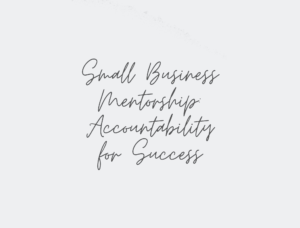Introduction
Modern, dynamic professionals often use “career development” and “career growth” interchangeably. To create a practical career path, you must understand the difference between these two concepts. Achieving a balance between career development and growth is essential for professional happiness and growth.
This blog post looks at the differences between career development and career growth, stresses how important they are, and advises on how to handle them for professional success.
Definition of Career Growth and Career Development
Career development is the process of moving up in a company or business. It usually involves getting paid more, getting promoted, and taking on more responsibility. Getting ahead in a job or field is emphasized, with the goal of reaching better positions and increasing one’s professional influence.

Career development includes personal and professional growth. The process involves learning new skills, insights, and life experiences that boost marketability and adaptability. Career growth stresses self-improvement, continual education, and exploring opportunities beyond hierarchical progression.
Importance of Career Growth and Career Development
Career growth and development are both essential parts of a satisfying work life. Individuals can reach clear goals, get recognition, and improve their financial situation through professional growth. It gives people a feeling of progress and satisfaction, which motivates them to strive for excellence.
Career development helps people to expand their skills, increase their employer appeal, and adapt to evolving industries. It boosts self-awareness, develops individuals, and prepares them for diverse work environments. Career development empowers people to overcome challenges, embrace opportunities, and find fulfillment in their chosen paths.
Difference between Career Growth and Career Development
Career development and growth are linked, but they are not the same thing. Vertical movement within a company or position is a common way to move up in a career. It stresses getting to higher positions in a company, moving up the corporate ladder, and taking on more responsibility.
But job advancement goes beyond just moving up in the company. It includes constantly wanting to learn new things, picking up new skills, and expanding your work horizons. For career growth, lateral moves, exploring new industries, and even starting your own business are emphasized. It motivates people to look for ways to move up, take on new tasks, and adapt to how the job market changes all the time.
Balancing Career Growth and Career Development
Set Clear Goals:
Be clear about your goals for both work growth and advancement. The choices and actions you make in your job will be based on precise and measurable facts.
Pursue Continuous Learning:
Adopt an attitude of learning new things all your life. Getting new skills and information makes you more employable and helps you move up in your job.
Seek Mentoring and Coaching:
Mentors and trainers can give you great advice and direction, which can help you grow professionally in your current job and build skills that will be useful in future employment.

Network Proactively:
Making connections within and outside of your business can open up new ways for you to move up in the company and the ranks.
Take on New Challenges:
Not being afraid to take on new tasks or duties. These things could give you experiences that are very useful for your job and help you grow as a professional.
Develop Soft Skills:
Even though technical skills are essential for moving up in your job, people skills like adaptability, communication, and leadership are even more critical.
Maintain Work-Life Balance:
Make sure you give yourself enough time to relax and grow as a person. A healthy lifestyle can make you more effective and productive, which can help you grow and move up in your career.
If you use these tips, you can have a successful and satisfying job while keeping a healthy balance between progress and career advancement.
Real-World Examples
A study of a number of real-life examples will serve to emphasize the complex connection between career advancement and career advancement:
Within three years, Sarah went from marketing associate to marketing manager. She attended industry conferences, earned digital marketing certifications, and expanded her professional network. These efforts established her as a specialist and facilitated her professional growth.
Software developer John attended workshops to improve his skills and learn new languages to advance his career. Although he didn’t pursue immediate advancements, his dedication to professional progress allowed him to take on more challenging tasks and become an expert on cutting-edge technologies.
Industry Perspectives
The Role of Growth in Corporate Advancement
Corporate success requires growth. It often determines an employee’s advancement in an organization, showing their ability to increase responsibility and achieve good results. Competence, initiative, and exceeding performance requirements characterize firm growth. This demands adaptability, resilience, and an understanding of the changing corporate environment. Senior management sometimes involves managing teams or projects, so corporate growth requires leadership and inspiration. Progress involves personal and organizational development.

How Development Contributes to Organizational Success
Organizational success requires development. Improved skills and knowledge equip staff for future issues. Continuous training increases productivity, innovation, and employee engagement. Keeping employees up to date on industry advancements and innovations helps retain staff and offers the organization a competitive edge. Therefore, development involves personal and organizational growth.
Future Trends
Technological Influences on Career Evolution
Technology has changed old jobs and made new ones possible. For example, automation has made some jobs obsolete but created a need for system managers. As AI and machine learning have become more popular, jobs have opened up in fields like data analysis, AI programming, and ethical AI control.
Digital technology makes it easier for workers to work from anywhere. This freedom has led to more independent and part-time jobs, which has made the workforce more diverse and helped the gig economy.
Emerging Opportunities and Skillsets
As the job market continues to shift, new jobs are opening up, and new skills are becoming essential.
Cybersecurity Specialists:
As our reliance on digital technology grows, we need professionals more than ever to keep private data and systems safe from cyber threats.
Sustainability Experts:
As businesses try to have less of an impact on the environment, they need more professionals who can help them come up with sustainable ideas and practices.
Data Science Professionals:
In this age of information, professionals who can look at, understand, and use a lot of data to affect choices are beneficial.
Remote Work Specialists:
As more companies let people work from home, there is a high demand for professionals who can make online work environments productive and encourage teamwork.
Digital Health Professionals:
The global health problem has sped up the adoption of digital health technology, which is good news for people who work in this field.
Soft Skills:
Soft skills like adaptability, emotional intelligence, and critical thinking are becoming more important in all fields, not just these.
Conclusion
To have a successful career, you must understand the difference between career advancement and career progression. Career growth is moving up in an organization or job, while career development involves learning, growing, and adapting. A balance between the two ensures long-term enjoyment, adaptation, and resilience in an ever-changing job market.
Setting goals, seeking progress, and accepting change can help people manage their career growth. Remember that your career path is personal. Therefore, you must balance your strengths, values, and goals. Whether you want to climb the corporate ladder or explore new territory, professional development and advancement will help you succeed.





